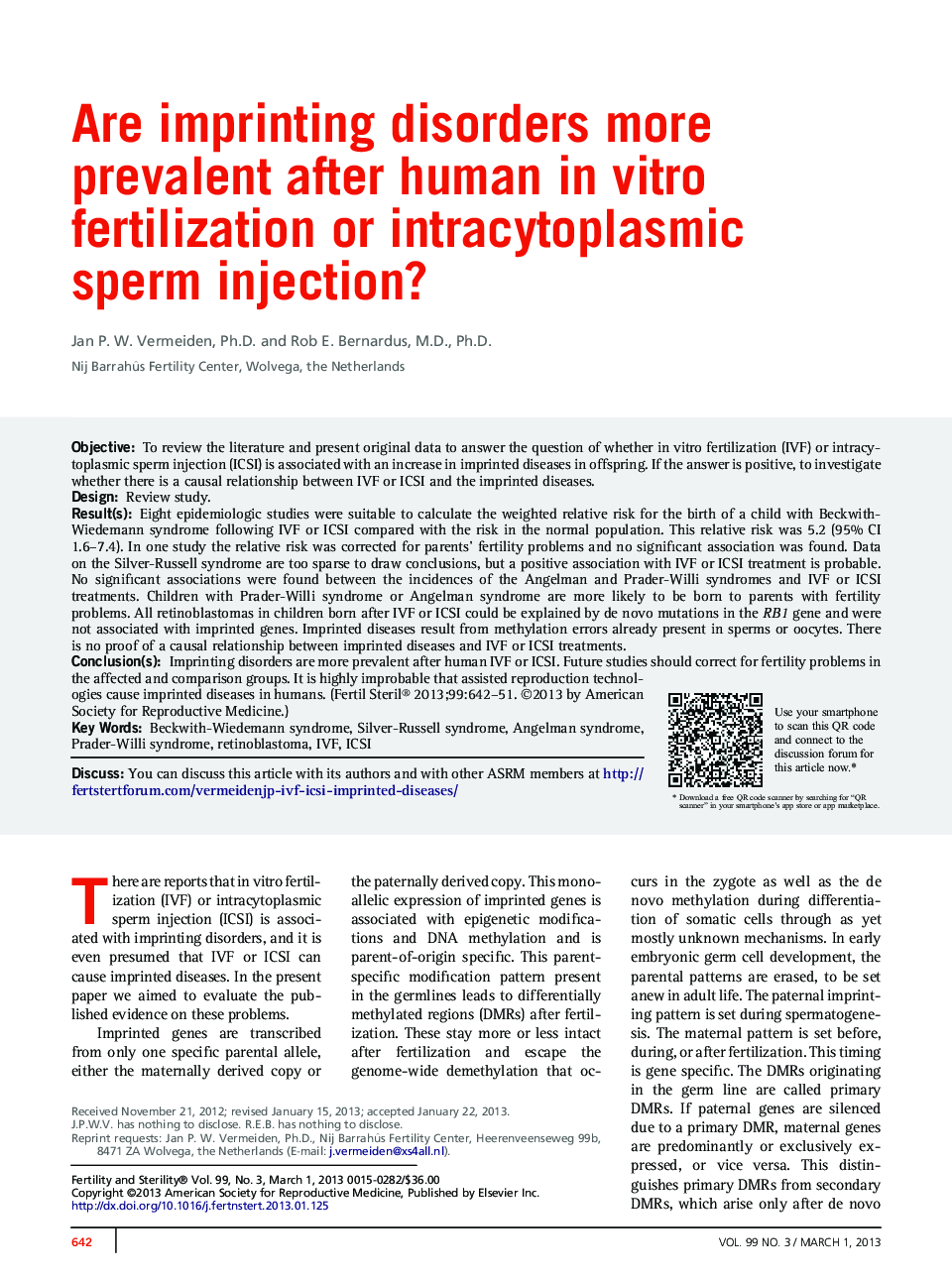| کد مقاله | کد نشریه | سال انتشار | مقاله انگلیسی | نسخه تمام متن |
|---|---|---|---|---|
| 3936780 | 1253461 | 2013 | 10 صفحه PDF | دانلود رایگان |

ObjectiveTo review the literature and present original data to answer the question of whether in vitro fertilization (IVF) or intracytoplasmic sperm injection (ICSI) is associated with an increase in imprinted diseases in offspring. If the answer is positive, to investigate whether there is a causal relationship between IVF or ICSI and the imprinted diseases.DesignReview study.Result(s)Eight epidemiologic studies were suitable to calculate the weighted relative risk for the birth of a child with Beckwith-Wiedemann syndrome following IVF or ICSI compared with the risk in the normal population. This relative risk was 5.2 (95% CI 1.6–7.4). In one study the relative risk was corrected for parents’ fertility problems and no significant association was found. Data on the Silver-Russell syndrome are too sparse to draw conclusions, but a positive association with IVF or ICSI treatment is probable. No significant associations were found between the incidences of the Angelman and Prader-Willi syndromes and IVF or ICSI treatments. Children with Prader-Willi syndrome or Angelman syndrome are more likely to be born to parents with fertility problems. All retinoblastomas in children born after IVF or ICSI could be explained by de novo mutations in the RB1 gene and were not associated with imprinted genes. Imprinted diseases result from methylation errors already present in sperms or oocytes. There is no proof of a causal relationship between imprinted diseases and IVF or ICSI treatments.Conclusion(s)Imprinting disorders are more prevalent after human IVF or ICSI. Future studies should correct for fertility problems in the affected and comparison groups. It is highly improbable that assisted reproduction technologies cause imprinted diseases in humans.
Journal: Fertility and Sterility - Volume 99, Issue 3, 1 March 2013, Pages 642–651